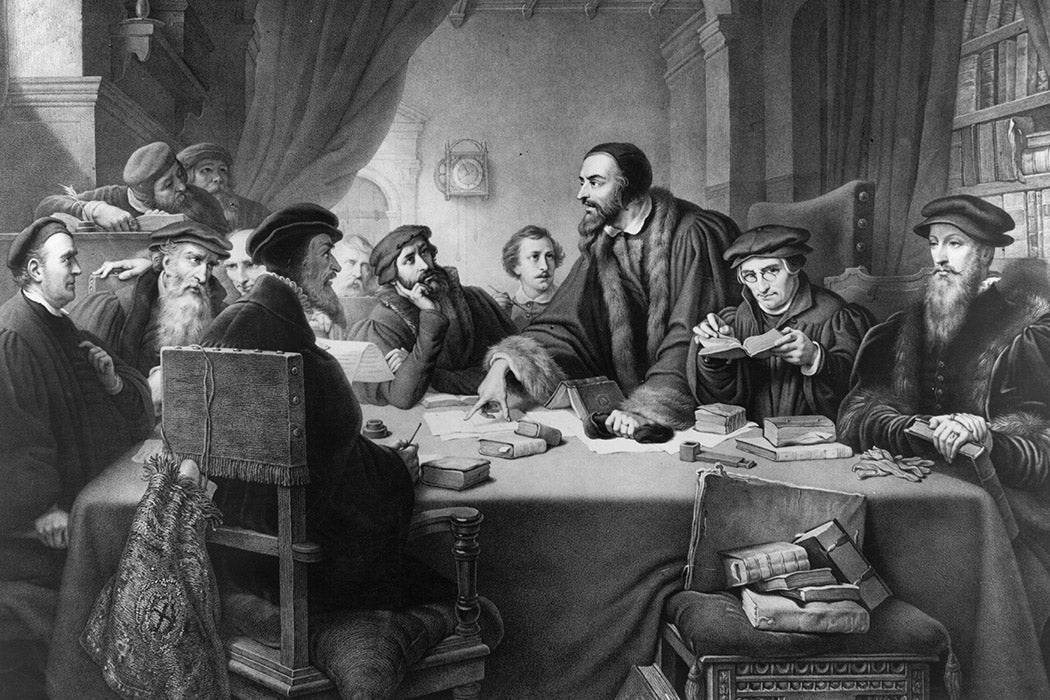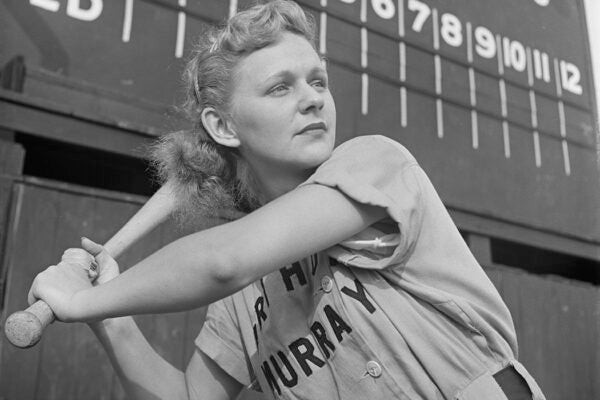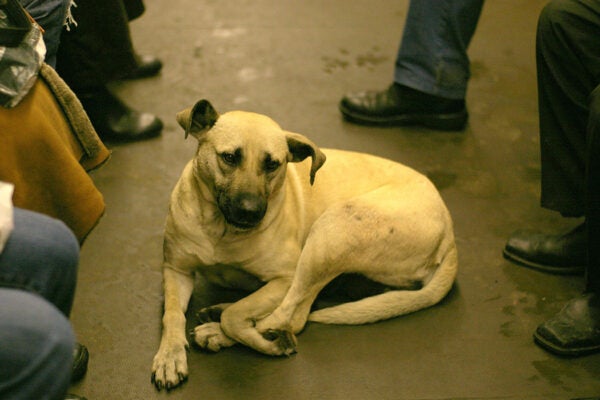In 1542, Protestant reformers including John Calvin himself took power in the city of Geneva, turning it into a center of the Reformation. As musicologist Melinda Latour writes, one priority for the government over the decade that followed was stamping out illicit singing,
Latour writes that Calvin deeply respected the power of music, describing singing as a kind of public prayer capable of moving people’s hearts to zealously praise God. But that same power could feed evil thoughts and deeds.
“Just as wine is cast into a vessel through the funnel, so also venom and corruption are dropped down into the depths of the heart through melody,” Calvin wrote.
Yet singing was a common pastime for all sorts of people in Geneva, and many popular songs were deemed “indecent,” “dissolute,” or “outrageous.” And so, between 1542 and 1552, the city’s hybrid civic-religious court, the Consistory, judged more than one hundred cases involving singing. These included a gentleman singing with his manservant on Mardi Gras, seven apprentices of a ribbon maker singing together, and a woman charged for singing while working in her house and yard, among many others. While in most cases the specific song was not recorded, when it was, it often had lyrics with sexual contents or innuendo. Songs were also frequently flagged as dance music—while authorities viewed singing as having a proper place in praising God, dancing was totally forbidden as a gateway to fornication.
Latour notes that there was a two-way relationship between the evils of dance and the indecent content of popular songs. As Calvinist jurist and theologian Lambert Daneau wrote, the most common songs at dances “reek of love, that is to stay of fornication and impurity: the songs will be sung with wide open mouths and loud voices, refrains, and the greatest glee, the more so the naughtier the subject.”
In some cases, those accused defended themselves by insisting they had been singing permissible songs, which included devotional music, patriotic songs, and songs of war.
More to Explore
John Calvin: The Religious Reformer Who Influenced Capitalism
In most cases, though, the singing of which people were accused was allegedly accompanied by other immoral behavior. Latour writes that numerous innkeepers, male and female, were brought before the Consistory for permitting some combination of illicit singing, sexual misconduct such as adultery or sex work, and sometimes card-playing. While authorities considered crimes like adultery much more serious than illicit singing, indecent singing was more easily witnessed than fornication, and they viewed the singing as a form of enticement to more serious offenses.
Weekly Newsletter
More broadly, the intense concern about song reflected the desire of Calvinist Reformation authorities to create civic systems of discipline to shape moral citizens. In contrast with Lutherans and other Reformation faiths, Calvinism insisted on discipline as a key method for unifying communities.
However, as witnessed by repeated proclamations issued by the Consistory over the years reminding citizens of the ban and ratcheting up penalties, stamping out singing was a very difficult task.
Support JSTOR Daily! Join our membership program on Patreon today.








